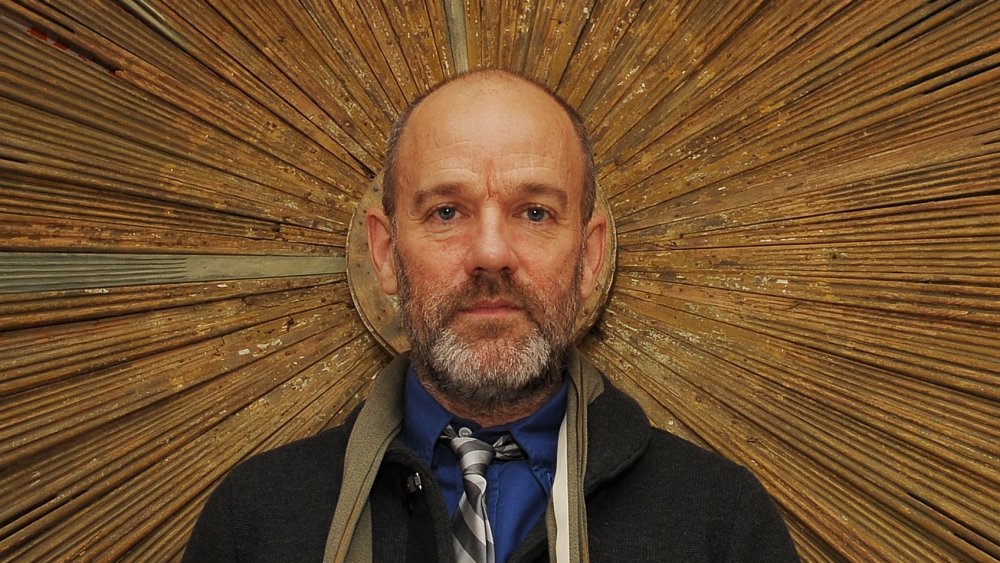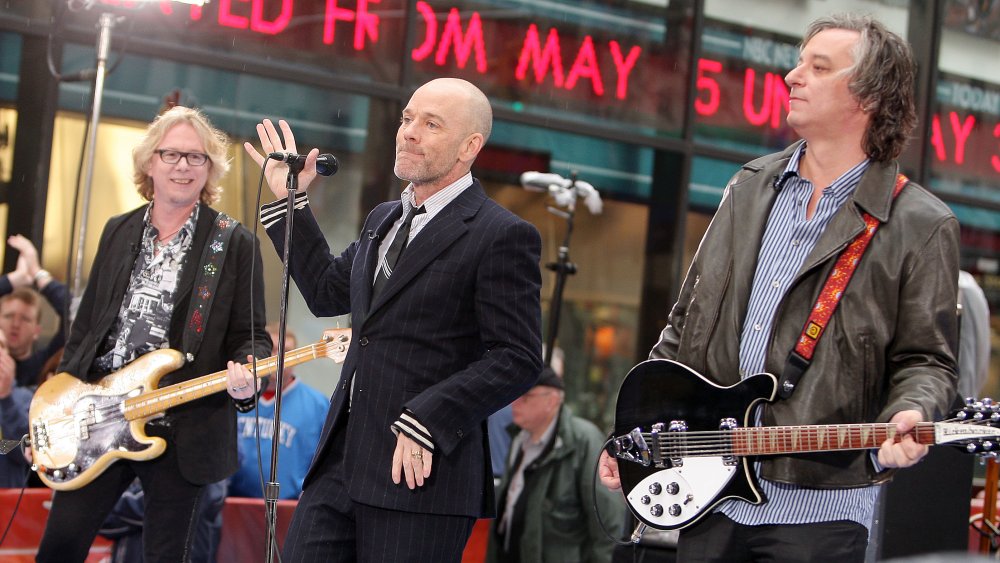The Real Reason R.E.M. Broke Up
Regardless of what your opinion about R.E.M. is, there's no denying that they shaped the face of alternative rock for years. Heck, they've basically been every kind of alternative rock band themselves. They spent their formative years as cult favorite college rockers. Then, they started attracting more and more attention until they were making music with genuine mainstream appeal. Between 1991 and 1992 alone, they released the folk-inspired Out of Time and the baroque Automatic For The People, making them easily the most successful band to attack the audiences of the early grunge era with both mandolins ("Losing My Religion") and string arrangements (A good chunk of Automatic). Oh, and as Rolling Stone reminds us, said arrangements were by Led Zeppelin's John Paul Jones, because of course.
That alone would have been enough to cement these guys' legacy, but they just kept on going, pinballing from straight rock to low-fidelity artsiness to electronic experiments. And then, in 2011, they broke up. As Matthew Perpetua of Rolling Stone tells us, the decision was amicable enough — but what on earth could have caused these seemingly boundless creative forces of music to part ways after three decades of glory? What could be the real reason R.E.M. broke up?
R.E.M. just wandered away to do other things
In a 2016 interview with David Fricke of Rolling Stone, guitarist Peter Buck insisted that R.E.M. never truly broke up, despite their 2011 message where they declared they were "calling it a day as a band." To be fair, there's a lot of "technically," there. The original lineup had technically already fractured in 1997, when drummer Bill Berry left the group. Buck himself admits that the rest of R.E.M. technically broke up in 2011, but he's also quick to point out that they only "broke up" in the sense that they stopped touring and making records. They still have all sorts of properties they own together, from publishing companies to record masters and even buildings.
As for why they broke up, in whatever sense they feel like they've done so, Buck says that they basically just grew weary of life in a huge major label band with scores of hits. This is evidenced by the fact, he notes, that former members have kept quite active, but prefer to keep their artistic activities at a grassroots level instead of forming supergroups. And how did they arrive at the all-important decision to "break up?" According to Buck, Michael Stipe said: "I think you guys will understand. I need to be away from this for a long time." Buck replied: "How about forever?" and bassist Mike Mills chimed in: "Sounds right to me." Talk about band chemistry.

